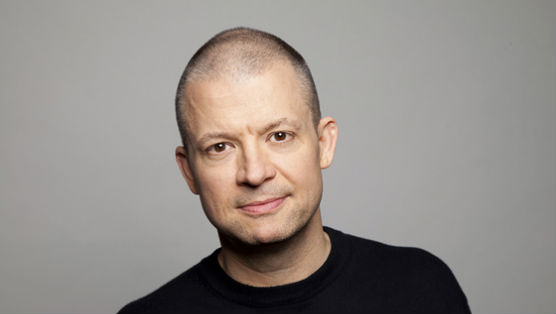
“It just seems like right now we’re in a place where people are being witch-hunted for expressing an opinion. Even if it’s a lousy opinion or a shitty opinion, and comics I don’t think can ever fall into the trap of any groups that want to censor what a person says or thinks or punish a person for expressing what they think. Anything you say about a social issue is going to offend half the country. I don’t care how nicely you say it, I don’t care how well you construct the joke, simply by stating the opinion, you are for something and anti something else.”
Last week, stand-up comic Jim Norton was chosen as the keynote speaker at the world’s biggest comedy festival, the Just For Laughs Comedy Festival in Montreal. When giving the speech, Norton addressed his criticisms and concerns with our culture’s reaction to being offended and how society is growing to censor itself.
As a longtime fan of Jim Norton, I was pleasantly not surprised at his honest and timely decision to speak on the notion of the insincere public apology as his keynote address. Ironically, before longtime The Opie and Anthony Show co-host Anthony Cumia was fired from SiriusXM, their most recent running radio bit was a series of discussions on dishonest public apologies.
Check out below to read a few stand-out quotes from the speech, although I highly urge you to listen to this speech. Skip over a podcast and try this guy out. He discusses the nature of society snitching on each other, moral boundaries, censorship, and controversial issues such as rape and murder.
I’ve even spoken with comedian Jim Florentine on the notion of the public apology as well, because it’s a phenomenon that I’m uncomfortable with 99% of the time. It’s comforting to see a comic taking a stand for freedom of speech in this climate. I’ve heard Jim say it before and I’ll agree with him every time: you do not inherently as a citizen have the right to not be offended.
Norton on “Boundaries:”
I don’t know why all of a sudden comedians are expected to respect the boundaries and comfort levels of the public. Richard Pryor didn’t respect them, Lenny Bruce didn’t respect them, George Carlin didn’t respect them; when society draws a line in the sand, it’s like a comics instinct to not only step over the line but rub it out with your foot and be belligerent about it. It’s impossible for me at least to respect the moral lines that people draw for their comfort levels simply because any morality that says subjects shouldn’t be joked about, I find that really hard to get in line with. The public scoldings and the punishments that are meted out, they’re inconsistent and they vary from performer to performer. How do you line up and say “I respect that morality,” when one day this is gonna get ya, and the next day that is gonna get ya.
Norton on “Snitching:”
It just seems like right now we’re in a place where people are being witch-hunted for expressing an opinion. Even if it’s a lousy opinion or a shitty opinion, and comics I don’t think can ever fall into the trap of any groups that want to censor what a person says or thinks or punish a person for expressing what they think. Anything you say about a social issue is going to offend half the country. I don’t care how nicely you say it, I don’t care how well you construct the joke, simply by stating the opinion, you are for something and anti something else. So, you know, half the people are gonna love what you say and think it was brilliant or intuitive and the other half are going to say you’re an offensive pig.
Norton on “Subject Matter:”
If comedians have boundaries about subjects that we cover then I don’t think we’ve grown much from the 1950s where you got in trouble for talking about sex or Catholicism.
I don’t think that any subject should be off limits. I kind of think that it’s all the way you come to the joke. I think the idea of being able to make fun of anything in the human experience, that sentiment has been lost on a great part of our culture.
I don’t think we should avoid unpleasant subjects simply because they’re unpleasant.
Norton on Anthony Cumia’s firing:
I think that some of what Anthony said, I wish he would have said differently, but the important thing for me was the way the press ran with the story. The story wasn’t ‘guy is assaulted, doesn’t hit woman back.’ The story was ‘radio host says shitty things on Twitter.’ That’s what the story becomes, so what you do, how you react, how you behave is not important. It’s what you say that’s important.
- Phife Dawg of A Tribe Called Quest has reportedly passed away - March 23, 2016
- UTG PREMIERE: Robots and Monsters – “Down To Ash” (Music Video) - June 2, 2015
- REVIEW: Morals – ‘Float’ - June 1, 2015
